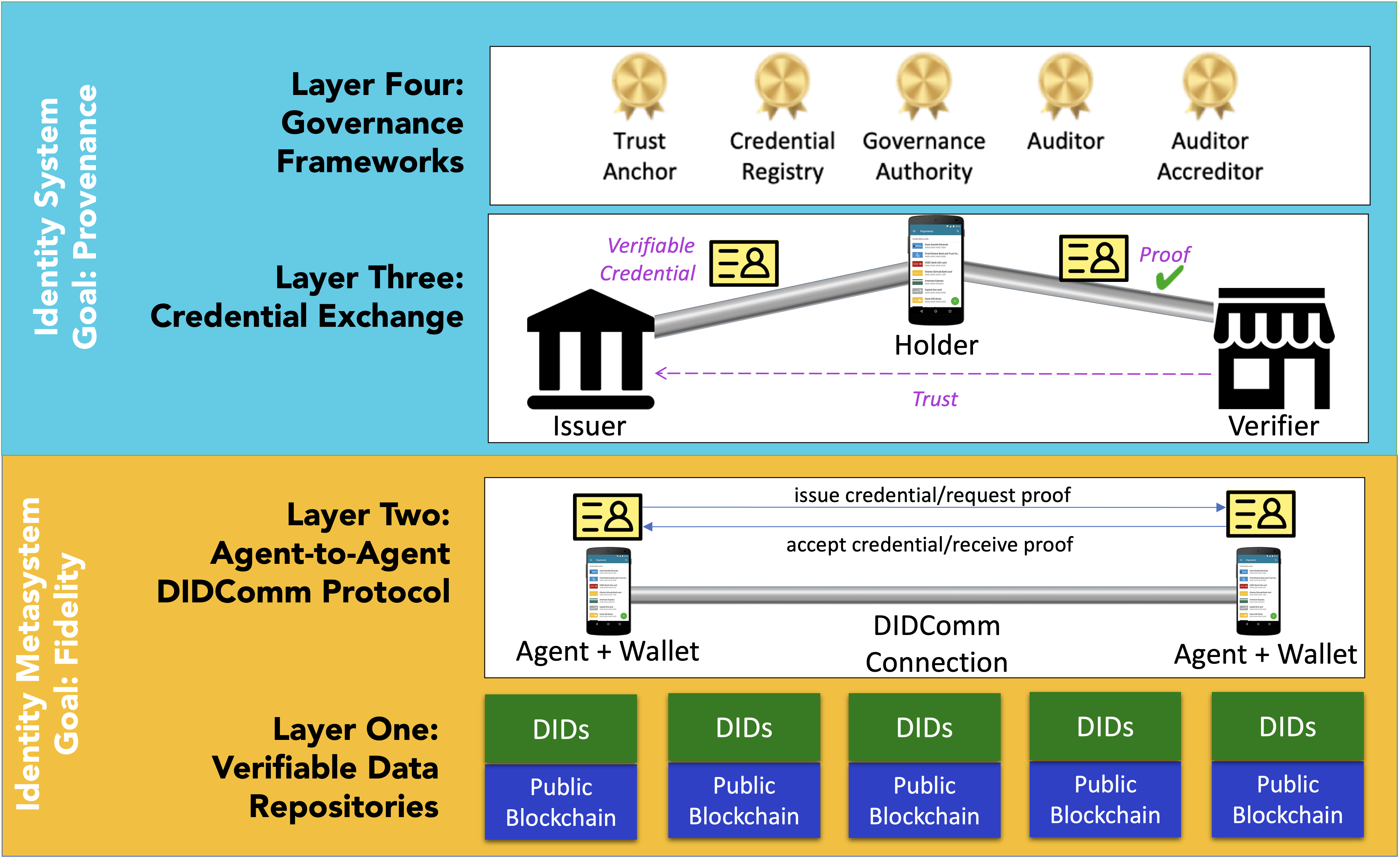Self-sovereign identity empowers individuals to control their digital identities without relying on centralized authorities. It prioritizes user consent, decentralization, and privacy, allowing people to selectively share personal information and manage their data securely.
Blockchain plays a crucial role in enabling self-sovereign identity systems. It provides a decentralized infrastructure for managing identity data, enables verifiable credentials, and enhances trust through transparency and immutability. This technology supports secure data storage and sharing while protecting user privacy.
Self-Sovereign Identity (SSI) Fundamentals
Principles of self-sovereign identity
- Empowers individuals with control over their personal data create, manage, and share digital identities without relying on centralized authorities
- User control and consent individuals have complete control over personal data and can decide when, how, and with whom to share it
- Decentralization identity data is stored in a decentralized manner reduces risk of single points of failure and data breaches (hacks, leaks)
- Interoperability SSI solutions should be compatible with various platforms and systems enables seamless integration and data exchange (blockchains, apps)
- Privacy and security prioritizes protection of user privacy ensures personal data is securely stored and transmitted (encryption, access control)

Benefits vs traditional identity systems
- Enhanced user control and privacy allows users to selectively disclose personal information minimizes risk of unauthorized access and misuse (data breaches, identity theft)
- Reduced reliance on centralized authorities eliminates need for intermediaries (governments, banks) reduces potential for data breaches and identity theft
- Improved data accuracy and integrity users can update and maintain their own identity data ensures information is accurate and up-to-date
- Increased efficiency and cost-effectiveness streamlines identity verification processes reduces administrative overhead and costs associated with traditional identity management systems (paperwork, manual checks)

Challenges of self-sovereign implementation
- Adoption and standardization widespread adoption of SSI requires development and acceptance of common standards and protocols
- User experience and education implementing user-friendly interfaces (mobile apps, web portals) educating users about benefits and responsibilities of SSI can be challenging
- Regulatory compliance SSI solutions must comply with existing regulations and legal frameworks related to data protection and privacy (GDPR, CCPA)
- Interoperability and scalability ensuring seamless integration and scalability of SSI solutions across different platforms and jurisdictions can be complex (blockchains, legacy systems)
Blockchain's Role in Self-Sovereign Identity
Blockchain in self-sovereign identity
- Decentralized identity management provides decentralized infrastructure for storing and managing identity data eliminates need for centralized authorities (governments, corporations)
- Verifiable credentials enables creation and verification of tamper-proof digital credentials (diplomas, certificates, licenses)
- Credentials can be cryptographically signed and verified
- Ensures authenticity and integrity of credentials
- Decentralized identifiers (DIDs) allows users to create and control their own unique identifiers can be resolved to obtain associated identity data (public keys, service endpoints)
- Trust and transparency blockchain's immutable and transparent nature enhances trust in SSI systems provides verifiable and auditable record of identity transactions (claims, attestations)
- Secure data storage and sharing enables secure storage and sharing of identity data through encryption and access control mechanisms protects user privacy (zero-knowledge proofs, selective disclosure)